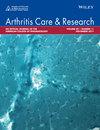Targeted synthetic disease-modifying antirheumatic drugs (tsDMARDs) have expanded the management of autoimmune diseases, including rheumatic diseases. As the use of these drugs grows, it is important to understand their effects on pregnancy. We conducted a scoping review to synthesize the current evidence on the impacts of tsDMARDs on pregnancy outcomes.
We searched the Embase, MEDLINE, and CENTRAL databases in November 2023. We included studies that examined tsDMARD exposure for chronic autoimmune disease(s), particularly in mothers during pregnancy, fathers before conception, and/or fetuses/neonates in utero. We extracted data on sample size, study design, tsDMARD exposure (dose and duration), and reproductive health outcomes.
Of 6,712 studies screened, eight were included, namely nine case reports, one case series, four cross-sectional studies, and one cohort study among patients with ulcerative colitis, rheumatoid arthritis, and psoriasis. Sample sizes ranged from 1 to 116 pregnancies or offspring, with six studies on tofacitinib, one on baricitinib, one on upadacitinib, and no studies on apremilast. Overall, 19 fetal/neonatal outcomes, six fetal/neonatal-maternal outcomes, and three maternal outcomes were extracted. The most frequently reported fetal/neonatal outcomes were congenital anomaly (n = 4), preterm birth (n = 4), and the fetal/neonatal-maternal outcome of spontaneous abortion (n = 4). Only one study reported on the maternal outcome of delivery via Cesarean section.
Our scoping review of evidence to date on the perinatal use of tsDMARDs reveal small sample sizes and a limited number of studies, all largely descriptive in nature. Findings highlight evidence gaps that preclude providers and patients from making informed decisions when considering the perinatal use of tsDMARDs.





